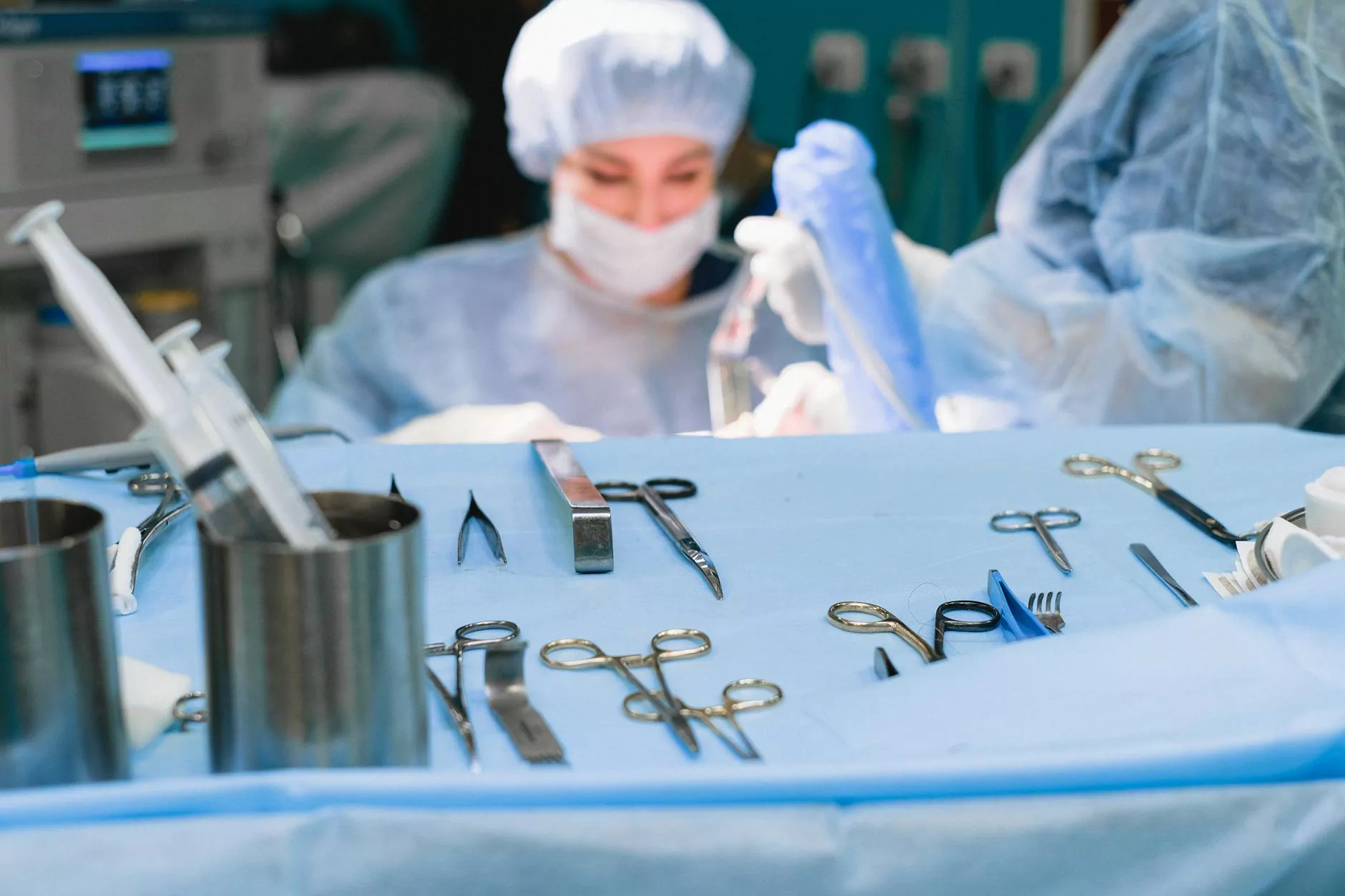The Importance of Medical Surgical Instruments in Modern Healthcare

The realm of health and medical practices is complex and multifaceted, but at its core lies the essential role of medical surgical instruments. These tools not only facilitate surgical procedures but also significantly enhance patient safety and treatment efficacy. This article delves deeply into the various aspects of medical surgical instruments, shedding light on their categories, uses, and the innovations that shape their development.
Understanding Medical Surgical Instruments
Medical surgical instruments are specialized tools designed to assist medical professionals during surgical procedures. They range from simple tools to complex machines, ensuring that surgeries are executed with precision and care. The utilization of these instruments is pivotal in a variety of healthcare settings, including hospitals, surgical centers, and outpatient clinics.
Types of Medical Surgical Instruments
There exists a diverse array of medical surgical instruments, each tailored to fulfill specific functions during surgical procedures. Below are some of the primary categories:
- Handheld Instruments: These include scalpels, scissors, and forceps, which are essential for cutting and grasping tissues.
- Electrosurgical Instruments: These instruments use electrical current to cut tissue and coagulate blood, thereby minimizing bleeding.
- Endoscopic Instruments: Used in minimally invasive surgeries, these instruments allow for internal examinations and operations through small incisions.
- Implants: Devices like stents and prosthetics used to support or replace damaged body parts.
- Surgical Drapes and Sterilization Equipment: Essential for maintaining a sterile environment during surgeries.
The Impact of Quality Instruments on Patient Outcomes
Utilizing high-quality medical surgical instruments significantly impacts patient outcomes. Here’s how:
Enhanced Precision
Precision is crucial during surgical procedures. Instruments that are well-manufactured allow surgeons to operate with confidence, reducing the chances of errors. For instance, sharp scalpels and finely tuned scissors enable accurate incisions, which are vital for successful surgeries.
Improved Safety
The use of correctly designed medical surgical instruments reduces the risk of complications such as infections and excessive bleeding. For example, the use of electrosurgical instruments can decrease blood loss during procedures, thereby expediting recovery times and reducing hospital stays.
Better Recovery Times
When quality instruments are used, patients often experience shorter recovery times. Procedures that can be performed with minimally invasive techniques, facilitated by advanced endoscopic instruments, lead to less trauma, resulting in quicker healing processes.
Adoption of Innovative Technologies
As technology continues to evolve, the landscape of medical surgical instruments also transforms. Innovations have led to the development of smart surgical tools and enhanced imaging technologies.
Robotic Surgery
Robotic instruments are revolutionizing surgical practices. These high-tech tools allow surgeons to perform precise maneuvers through small incisions, minimizing pain and recovery time for patients.
3D Printing in Surgical Instruments
The use of 3D printing technology is becoming more prevalent in the creation of custom surgical instruments. This innovation allows for the manufacturing of tools that fit the specific anatomical needs of patients, enhancing surgical outcomes.
Ensuring the Quality and Sterility of Surgical Instruments
Medical surgical instruments are only effective if they are maintained and sterilized properly. Sterilization processes such as autoclaving are crucial to eliminate any risk of infection. Additionally, regular inspections and proper handling protocols must be established to ensure instruments remain in optimal working order.
Regulatory Standards and Compliance
Healthcare institutions must comply with various regulatory standards regarding the use and sterilization of medical surgical instruments. This includes adhering to guidelines set by health authorities, which are designed to ensure patient safety and instrument efficacy.
The Role of Medical Supplies Suppliers
Medical supplies suppliers play an essential role in providing healthcare facilities with quality medical surgical instruments. A reliable supplier ensures that medical institutions have access to the latest and safest instruments available.
Benefits of Collaborating with Reputable Suppliers
- Access to the Latest Technology: Suppliers often provide the newest instruments and techniques available in the market.
- Quality Assurance: Reputable suppliers conduct thorough checks to ensure their instruments meet industry standards.
- Training and Support: Many suppliers offer training for healthcare professionals on how to use new instruments effectively.
Conclusion
In summary, the significance of medical surgical instruments in modern healthcare cannot be overstated. They are essential tools that enhance surgical precision, improve patient outcomes, and facilitate advancements in medical technology. As the field continues to evolve, the importance of quality and innovation in surgical instruments will remain paramount. For healthcare practitioners and facilities alike, ensuring access to the best instruments and supplies is crucial in the pursuit of high-quality patient care.
Find more information about medical surgical instruments and how to acquire them at new-medinstruments.com.









